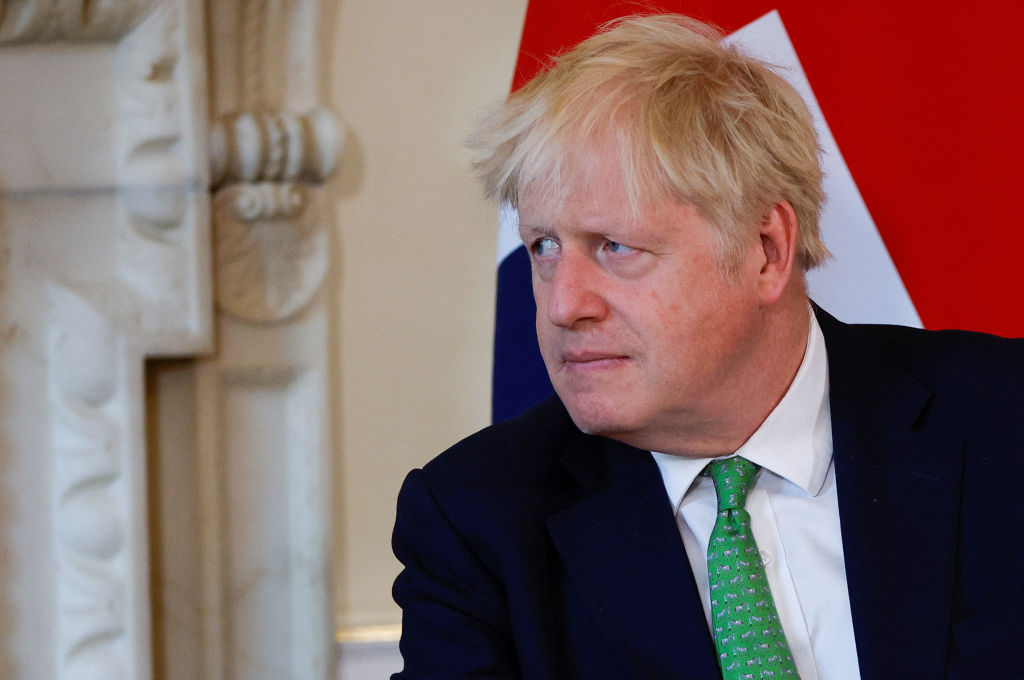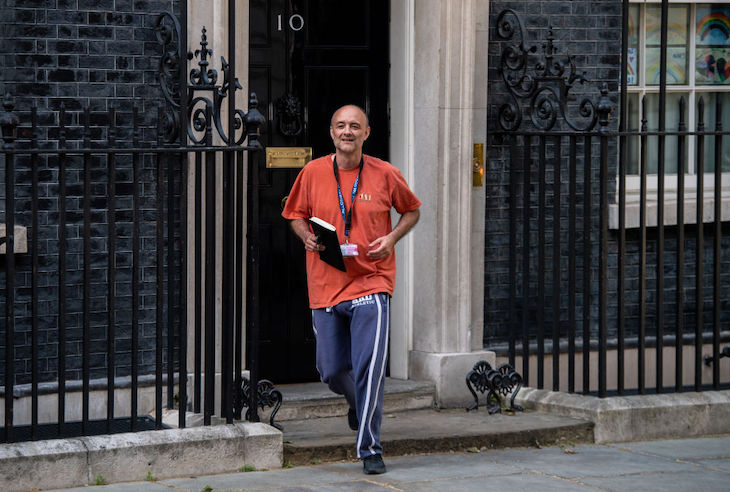You might be wondering why Britain’s government has rolled from crisis to crisis since the pandemic began, culminating today in the resignations of two leading ministers, and with the threat of more hanging overhead.
Some would blame the character of 2020 and the pestilential years since; others the nature of Boris Johnson, the prime minister: his “colorful” personal life (a hard-working euphemism); his lack of focus; his indifference to the truth.
I would look a little broader. Britain’s political life is the product of the people who fill its parliament. And very many of them are deeply substandard people.
The straw that apparently broke the camel’s back this week was the government’s former deputy chief whip, a man called Chris Pincher. Innuendo and rumor have long followed Pincher. He resigned from a minor government post in 2017 after being accused of sexual harassment by two men.
One of them called Pincher a “pound shop Weinstein.” Less than a year later, he was reappointed to the government as deputy chief whip, one of whose responsibilities was dealing with sexual harassment scandals.
After this, it was near-continuous government service — as minister in the foreign office, minister of state for housing, and, finally, deputy chief whip once again.
To think that someone like this could be a mainstay of government — a stalwart of the party in power.
Drolly, Pincher is the drinks columnist for a London magazine, and took great relish in his work. He left the government last week after a drunken rampage in the Carlton Club during which he allegedly groped two men.
Ever since, past accusations have issued forth.
The prime minister at first claimed he had not heard of any of them before giving Pincher more jobs in government. Now he has changed his tune. The former chief civil servant in the Foreign Office — where Johnson was foreign secretary — confirmed that Johnson was told of the accusations made against Pincher when Johnson was the minister, and Pincher’s direct superior. It didn’t trouble Johnson enough, however, to prevent him from reappointing Pincher to government when Johnson became prime minister.
Johnson is even said to have joked about it, noting, “Pincher by name, pincher by nature,” according to his grievance-touting former chief advisor.
This is just one story about one man. But by God, it is not the only one. The propensity of British politicians to get drunk and degrade themselves by groping everyone within reach is a badly guarded secret.
Alex Wickham, a journalist, wrote in 2014 of the special interest members of Parliament (MPs) take in young blondes of both sexes.
In 2017, a widespread scandal — termed “pestminister” — seemed likely to end many careers, but seemingly never quite did. An unredacted spreadsheet of accusations attributed to more than 40 MPs did the rounds, but very little of this could be confirmed, and did not see the light of day.
The undertone continued unabated.
A 2019 report found that “staff of members of parliament are subject to an unacceptable risk of bullying and harassment, including sexual harassment, at work.”
This aspect of the “culture” of Westminster has long been known, with much worse than had appeared in public often suspected.
Recently, things have become more overt, and more shocking.
Over the past few months, Britons have seen one member of parliament convicted of sexually assaulting a teenage boy, while another MP — so far unnamed — has been arrested on suspicion of rape.
We are also treated to lurid rumors printed in Private Eye about the prime minister’s sexual impropriety, in the office, with his future wife, and another MP recently resigned from parliament who watched porn in the Commons chamber. That one was almost funny. He said he was looking for videos of tractors.
Why is this happening?
In part, it is because MPs — already prone to the worst effects of ambition and even their superficial power — employ their own staff directly. To talk to some parliamentary staff, it is like deciding to place foxes in charge of 600 henhouses.
Other sitting MPs are accused of having hit their wives, taking drugs and exposing themselves, and sexual assault.
MPs are also without the kinds of boundaries and self-control incumbent on people with normal jobs.
Many exhibit a chronic lack of sexual restraint and alcoholism which could only fly for those employed by the grace of the voters, who must only work to retain their jobs roughly once every five years.
These people lack the skills to succeed in other areas of life. They’re not intelligent enough to be judges or financial directors, yet their ambitious natures still compel them to seek power.
They exercise what little mastery they have over those they can bully, often sexually. For those who repeatedly get away with it, it might even seem like a perk of the job. Until quite recently, this was only whispered about — suspected by all, known by a few, but largely left alone.
Britain’s parliamentarians seem more prone to sexual misconduct than any other random collection.
It is a sad truth, and one which ensures that British politics — and especially the ruling Conservative party — is doomed to remain dysfunctional and absurd.

























